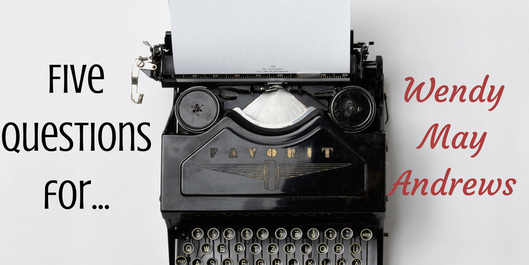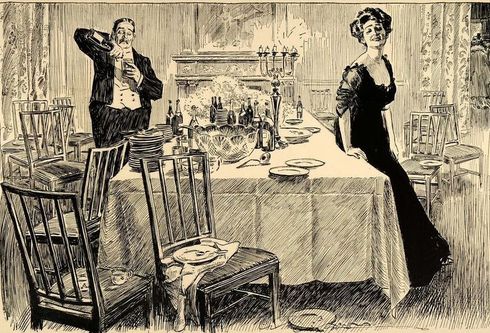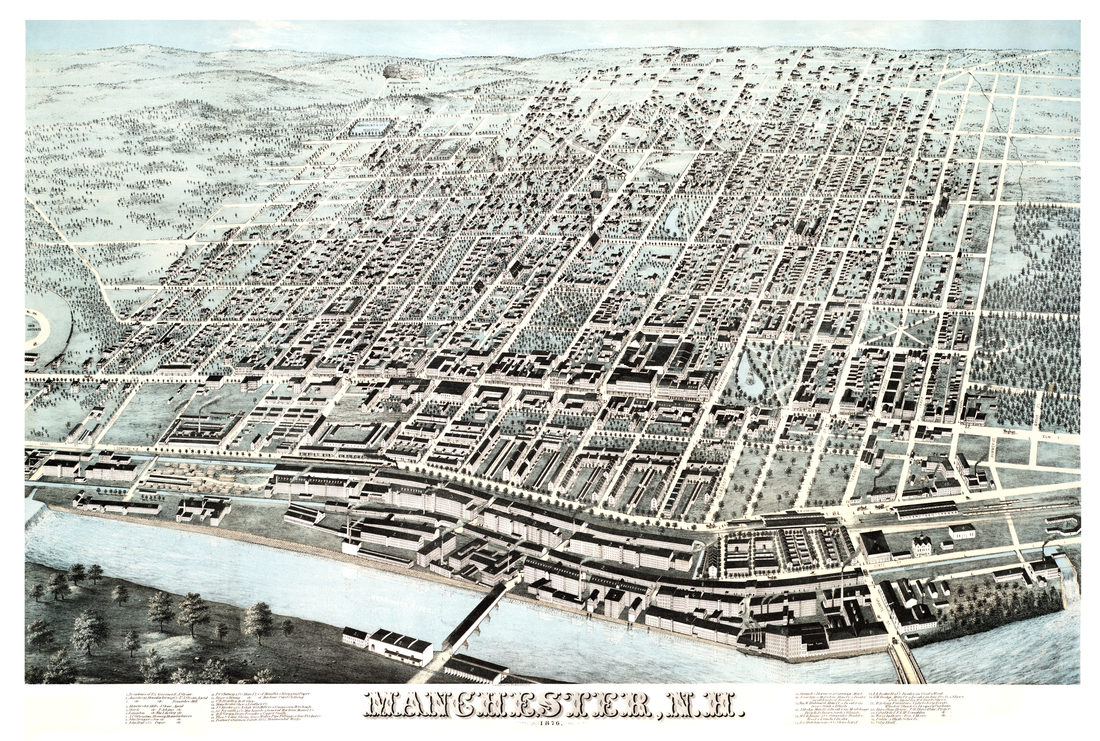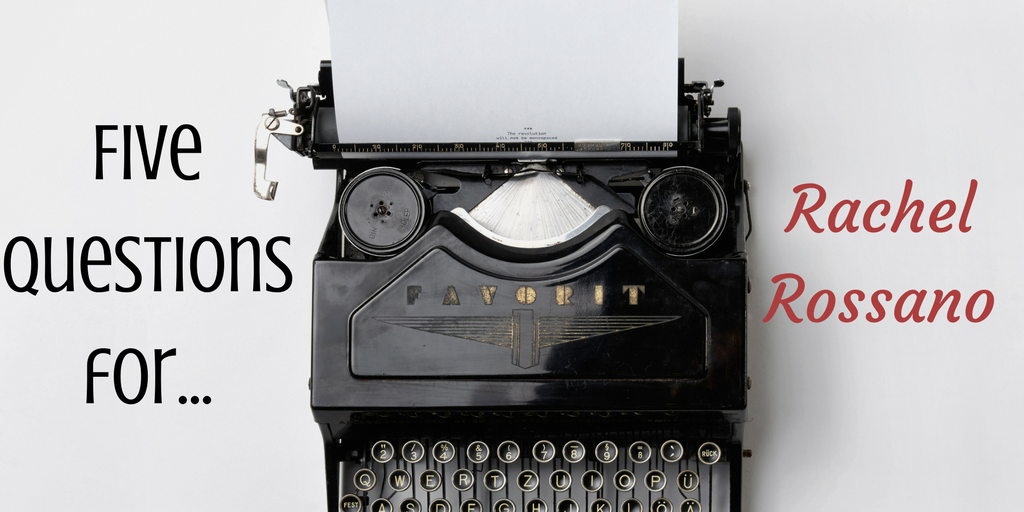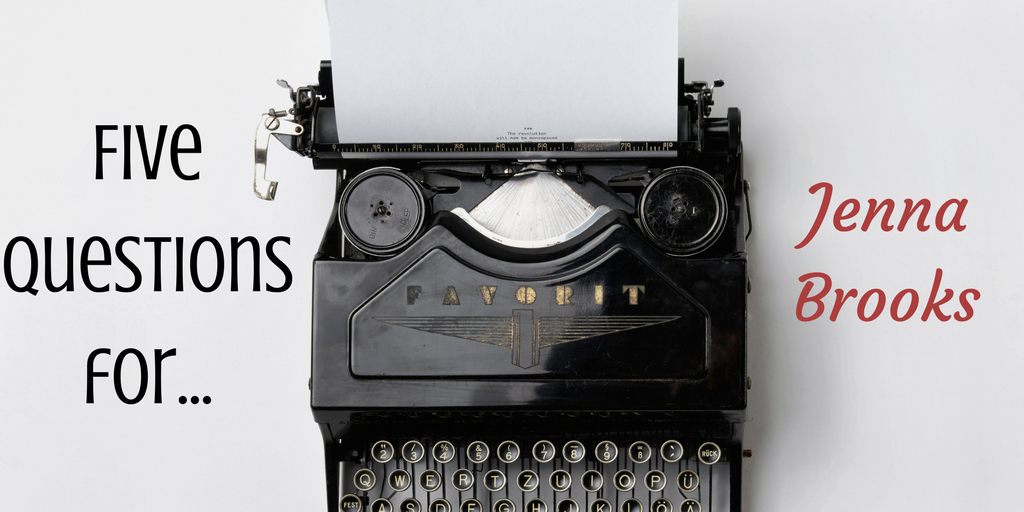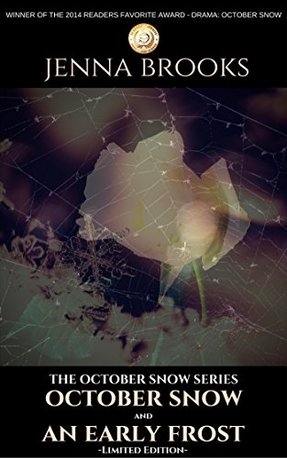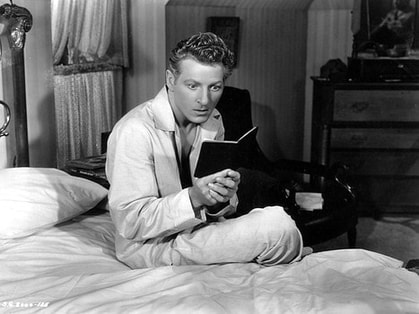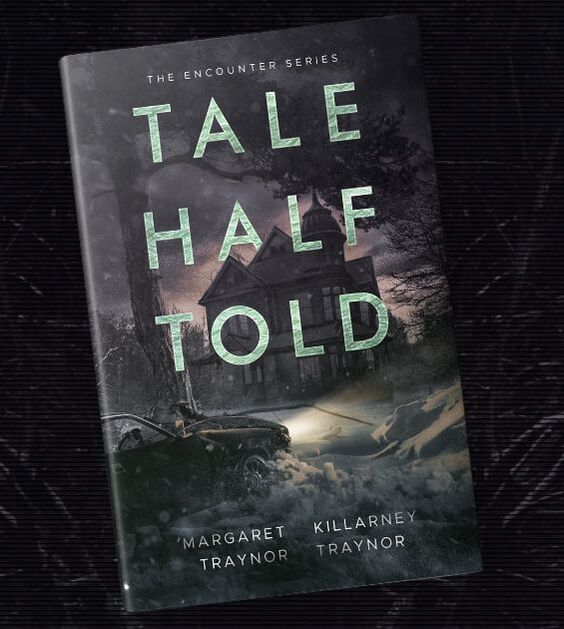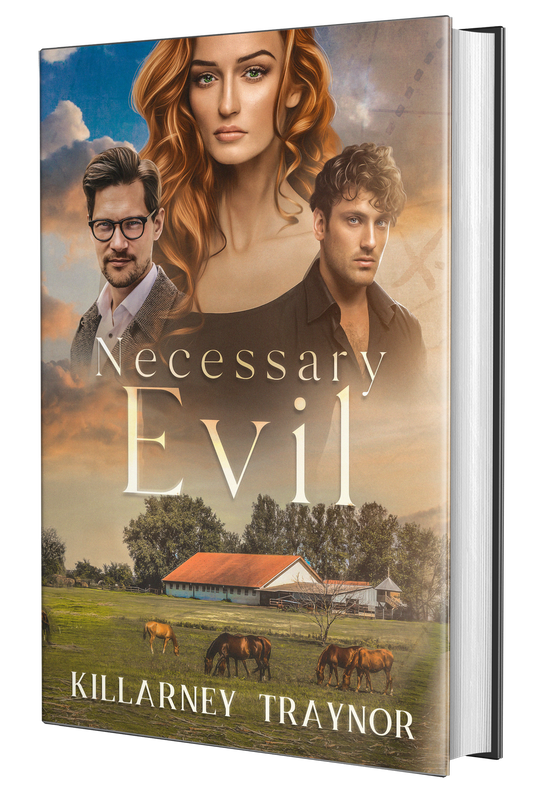 Today is Ash Wednesday, the beginning of Lent, the Catholic Church's 40-day season of fasting, alms giving, and prayer in preparation of Holy Week and Easter. Today, we are marked with ashes and reminded: "Dust you are and to dust you shall return." It's easy to get caught up in the gloominess of that sentiment and, indeed, in the penitential rites and rituals that fuel this particular season (Fridays are the worst for a meat-lover like me!). After all, sacrifices, even voluntary ones, are often uncomfortable and prayer, and contemplation tends reminds us of how small, how dust-like, we really are. But the second reading today reminds us not to limit our vision. We may be small, but we are loved immeasurably. We may be limited, but God is not. We may not feel like we're worth much, but God gave Himself through His Son to ensure our future happiness. We may be dust, indeed, but we are dust that are loved beyond all measure. So take up your cross and remember: the battle is already won and the best is yet to come. Today's Second Reading:
2nd Corinthians 5:20 - 6:2 So we are ambassadors for Christ, as if God were appealing through us. We implore you on behalf of Christ, be reconciled to God. For our sake He made Him to be sin who did not know sin, so that we might become the righteousness of God in Him. Working together, then, we appeal to you not to receive the grace of God in vain. For He says, “In an acceptable time I heard you, and on the day of salvation I helped you.” Behold, now is a very acceptable time; behold, now is the day of salvation.
0 Comments
Rejection is part of the game of life. But what does it actually mean about you, personally? 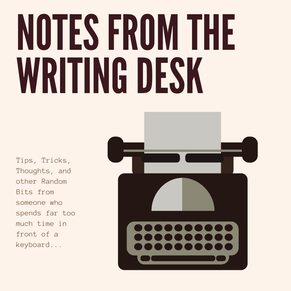 As part of my new 2020 initiative, I decided (among other things) that I was going to be braver, that I was going to put myself and my work out there a little more. I've always wanted to be a published author (hooray for Amazon!), which I managed, but I wanted to reach out and try it a different way. I decided I need to query more literary agents. Now, for those of you who don't know, when you write a fabulous new novel, authors these days have two options: they can publish it themselves, using Amazon or WattPad or any number of platforms, or they can do it the old fashioned way. As I've always had a not-so-secret hankering to be published by HarperCollins or Penguin, I decided to pursue this route, which entails writing a synopsis of your book, a query letter for said book, and then sending query letters and samples to literary agents who, if they like it, will sign you on as a client and then shop your manuscript around to publishers like Penguin and HarperCollins. I've been down the query road many, many times before. My twenties is a decade papered over with rejection letters. It hurt back then, when I was a tenderfoot, but now, I decided, I was tough. I've gotten bad reviews. I've gotten rejected, both to my face and online. I can take whatever is dished out. Accordingly, I lovingly crafted my letter, my synopsis, and triple-check my sample and then sent it out to a number of agents. I got back the usual auto-letters, thanking me for my submission and politely informing me that I can expect to hear back from them in 2-8 weeks. "Fine," I thought, "I can wait." Not an hour later, the first rejection letter came in. One particular agent couldn't wait to clear my query out of her inbox. As it turns out, I was wrong - you're never too tough for rejection to sting a little. To be absolutely fair, the pre-filled rejection letter was polite and even encouraging. My story was not to the taste of this particular agent, but fret not, for surely the perfect agent must be out there! I was not inclined to take this part of the letter to heart. All I could see was the sentiment "Thanks but move along." Turns out, this reaction of mine is not uncommon. Being cautious creatures, who long ago were at the bottom of the land-based food chain, we tend to focus on the dangers and the pains rather than the bright side of any situation. But just because we initially do, it doesn't follow that we have to stay there. In real terms, however, this one pre-filled rejection letter does absolutely nothing (except sound the death knell on a potential business relationship). The literary agent was quite correct in saying that just because my story didn't appeal to her, it doesn't mean that it doesn't appeal to anyone. But let's say the worst happens. Let's say no one wants to publish it. What then? I realized very quickly that, if every literary agency in New York City rejects my manuscript, if Penguin or HarperCollins never learn of my existence, if every troll on Amazon puts my work at the top of their target list, none of that really changes anything. I'll still write. I'll still pepper my friends with questions like, "Would this work?" "What do you think of this plot twist?" I'll still type until my eyes are so tired until they feel like they are going to fall out. I'll still day dream and compose and make up brand new worlds in the privacy of my own head. It's what I do. It's what I've always done. Rejections sting, 'tis true, but they don't actually change much. I'm still me. I still like what I do and what I write, and lucky for me, I can still do it, regardless. There is great power in realizing where the real power lies. So if you like what you're doing, keep on keeping on. Keep working it, keep growing, keep learning, keep trying, and remember: no amount of rejections can stop you from doing what you love. It may lead you to a new or different way of expressing your passion (you may not work with Leonardo DiCaprio, but you can still be in some pretty cool indie films), but in this day and age especially, there a more avenues for creative expression than ever before. So stick with it and keep going. So I guess I better keep on keeping on. And while I'm at it, I'll treat myself to a chocolate bar tonight. Because rejection, even if it doesn't mean all that much in practical terms, it still has a sting. 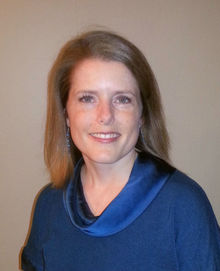 Canadian author of 8 novels, Wendy May Andrew Canadian author of 8 novels, Wendy May Andrew 1. Hi and welcome to Wanderings! Our audience is dying to get to know you, so tell us a little bit about yourself! Hello, and thank you for having me by. I’m the proud author of eight sweet, historical romance novels. I live in Toronto and love living where I can walk to everything. But we also love to get out of the city and hike in nature. Like most authors, I started out as an avid reader and I still love to read. Another passion of mine is travel. My husband actually inspired both of these loves. He dared me to start writing and he’s the one who got me hooked on travel. I’m also “trying” to get addicted to exercise since both reading and writing are sedentary activities and I want to be healthy enough to keep pursuing my interests until I’m old and gray. 2. When did you begin writing? What inspires your writing? For me, these two questions go together. I’m an avid reader, as I said. If I’m reading a good book, even if the house exploded, I might not notice until I finished. My husband, not an avid reader, doesn’t love this particular quality. He used to complain about my reading and suggest I ought to be writing books instead of reading them. Finally, when I wouldn’t stop reading, he challenged me to write a book before I read another one. I didn’t think I could do it, but I accepted his dare and stuck my behind in front of my computer and gave it a shot. The end result, after a year or two of hard work, was my first published book, Tempting the Earl. Now I love writing almost as much as reading, but it doesn’t preoccupy me in the same way so my husband doesn’t mind nearly as much. And I love my husband dearly so I would say he’s my inspiration. This challenge took place about ten years ago with my first book getting published in 2010. 3. Family is so important! How does your family inspire and support your work? My husband is very supportive. He thinks it’s great that his wife is a published author. He “lives” every book along with me. While we both know my characters aren’t real, we have been known to discuss them as though they were. If anyone ever overheard us, it would be hilarious! And my parents are my biggest fans! They read each draft of every book and then buy it when it releases. They are my motivation because they’re always anxious for the next one. 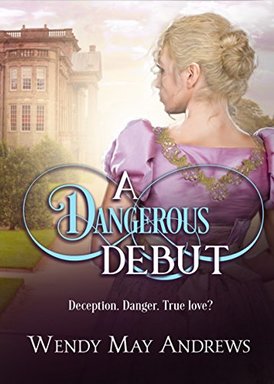 4. I know you love to travel! Do you set your stories in places you’ve been? Yes! But I did it in reverse. I started writing my books set in England before travelling there. I had just signed the contract for my first book when we went to London to celebrate. It was a wonderful trip. We went to so many museums. There’s a museum of interiors where they have the same townhouse but how the interior would have changed through the years – VERY cool!! And then in the summer of 2016 we went again to explore places outside of London for my characters to visit – Brighton, Southampton, Bath, Salisbury, Marlborough, Blenheim… Such a fantastic trip. And SO much inspiration!! I’ve just started writing a series based on inspiration I received on that trip. 5. Where would you rather live: Avonlea with Anne? Or Concord with the March sisters? Why? It’s hilarious you would ask this question – my first two favorite authors were Louisa May Alcott and Lucy Maud Montgomery. I want to say it’s a tie, I would love to spend time with both Anne and the March sisters. But I’m actually from Atlantic Canada, even though I now live in Toronto, so I’ll say I would rather live in Avonlea with Anne. Prince Edward Island is beautiful. And I think Anne (with an “e”) might be a little more peaceful of a companion than being in the midst of the four March sisters. I have read all the Anne books and all of “Jo’s” books multiple times. Now that you’ve reminded me of them, I should dig them out and read them again!
There seems to be some confusion about who wrote this poem, either Edgar A Guest or John Greenleaf Whittier. Whom ever it was, there's no doubt that this is a great pick-me-up. Learn it, love it, and never quit! 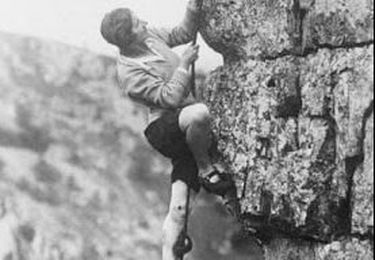 When Things go wrong, as they sometimes will, When the road you're trudging seems all uphill, When the funds are low and debts are high, And you want to Smile but have to sigh. When care is pressing you down a bit, Rest, if you must, but don't you quit. Life is queer with its twists and turns, As everyone of us sometimes learns, And many a failure turns about, When he might have won if he'd stuck it out, Don't give up though the pace seems slow, You might succeed with another blow. Success is failure turned inside out, The silver tint of clouds of doubt, And you never can tell how close you are, It may be near when it seems afar, So stick to the fight when you're hardest hit, It's when things seem worst that you mustn't quit. 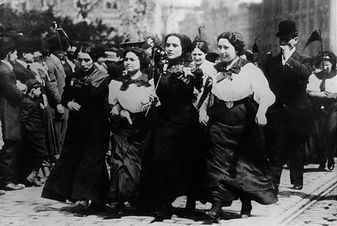 New York Mill Workers, circa 1910 New York Mill Workers, circa 1910 You'll never know what you don't know about a period until you're writing a book or making a movie about that era. Seriously. It's odd what you find yourself typing into the Google search bar. For instance, when I was writing Necessary Evil, I needed to know everything worth knowing about engagement rings during the Civil War. Were engagement rings used? If they were, did they have stones? Were they gold? Could we tell what they were just by looking at them? 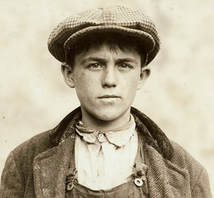 A potato eater A potato eater Similarly, with The Dinner Party, I've found myself researching things that I never would have dreamed of looking into. Here are a few instances: - If you were a jerk, would you call an Irishman a 'potato-eater' (Answer: yes.) - Do the Felsons own a mill or a factory? (Answer: both. It is a factory, but its powered by water, which means it would have commonly been referred to as a mill) - Would a husband lead a wife into the dining room for an elegant dinner party? (Answer: no, indeed! The very gauche idea!) - How close would an owner's/overseer's house be to the mill/factory he ran? (Answer: it varied, probably dictated by wealth, wife, and how smelly the factory/mill was.) - What would young radicals be ranting to their elders about? (Answer: pretty much the same thing they are ranting about now, only with fewer selfies.) 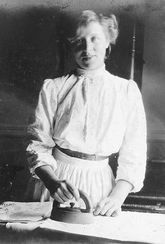 A career girl, circa 1906 A career girl, circa 1906 Fortunately, I really love this kind of thing. Research like this makes the past come alive in ways a text-book can't quite touch. Movie-making, too, allows us to remember that our ancestors were, at the end of the day, people just like you and me, trying to make a go of things and learning, working, laughing, fighting, and loving along the way. Now, if you'll excuse me, I have to find out whether lemons would have been available in New Hampshire in May of 1906... 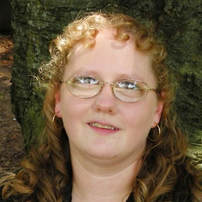 Homeschooling mother of three and author Rachel Rossano Homeschooling mother of three and author Rachel Rossano 1. Hi and welcome to Wanderings! Our audience is dying to get to know you, so tell us a little bit about yourself! Thank you for having me. I am a happily married homeschooling mother of three kids. Writing is my passion and cover design my hobby. I love a good story. If I can’t find one, I endeavor to write one. 2.What inspires your writing? Life inspires me. I love people: how they make decisions, relate to those they love and hate, and what they pursue. Situations can spark ideas. Conversations, visual impressions, and people’s body language all have provoked me to mull over new ideas. 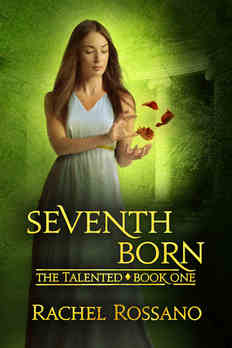 3. What inspired you to write this book? Seventh Born, and the whole Talented Trilogy, started with an idea over a decade ago now. My husband I were having difficulty having children and I was faced with the very real possibility that we would remain childless. As I realized that dream might be slipping away, I prayed a lot, trying to find a new long term dream or goal, a purpose. The answer was publishing. With that in mind, I struggled with the fact that all of the publishers I looked into were not looking for what I wrote: non-magical historical-like medieval-like romance with adventure. So, I decided to try to write straight fantasy. What if one of my main characters were a public official in a country that officially followed a different religion, sort of like the prophets of the Bible? What if I used the seventh son concept that I kept encountering in my reading at the time? What if I threw in some special abilities that could be possibly genetically engineered? But I didn’t want to do science fiction so I set it in a regressed society inspired by some Roman cultural aspects (in their dress, architecture, and vocabulary), but not in everything, which gave me room to world build in new directions. 4. Romance is the best! Which classic couple is your favorite: Elizabeth and Darcy? Jane Eyre and Mr. Rochester? Romeo and Juliet? Or do you have another favorite and if so, what makes them the best? One of my long-time favorite books is Jane Eyre. However, Elizabeth and Darcy hold a close second. Darcy, especially, has inspired a character in some of my books. Lord Dentin of Honor and the Novels of Rhynan series is almost a medieval version of Darcy. However, all that said, I tend to be drawn to romantic couples and their relationships. Realistic romance tends to crop up in all of my books. 5. So, you’ve just written a book: what’s next? More writing and publishing is on the agenda. I currently have five novels (the next two in The Talented series, the first installment in a science fiction series, a contemporary inspirational romance, and then third novel in the Novels of Rhynan series) are in the pre-publishing process. I am currently writing the first draft of a novel in a new series, with at least five more installments planned. I still even more ideas simmering on the back-burner for more novels. I can’t wait to write them all!
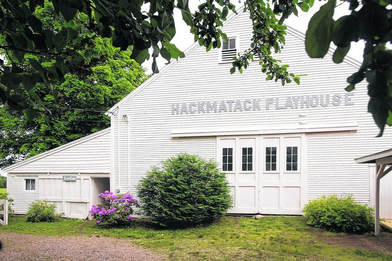 One of the best parts about film making is, as I may have mentioned before, all the cool people that you get to work with. Another fun part is all the place you get to go in search of locations, props, costumes, vehicles, etc. When you're working on a no-budget film, you can't afford to have things made for you, so you have to improvise, be creative, beg, and borrow. Yesterday, I got to go to Hackmatack Playhouse in Berwick, ME, to look at costumes for our upcoming movie The Dinner Party. Located on a beautiful farm, with rolling fields framed by pine trees, it looks like a set out of Anne of Green Gables - except for the bison, milling about in the far field. Yes, Hackmatack is also a bison farm - how awesome is that? The stage is located in an enormous barn and there's a refreshment stand that boasts of selling coffee along with the usual theater goodies. The costumes were stored in another wooden equipment shed. Autumn Allen, our leading lady for The Dinner Party, helped me sort through decades worth of dresses, suits, hoop-skirts, and outfits from every era, which Hackmatack generously allowed other theaters and filmmakers to use. The Edwardian period is pretty tricky to outfit (it's a very distinctive period), so every article of clothing helps. What didn't help was seeing the gorgeous Medieval outfits that they had on the rack: they just revived my long-dormant desire to write a an Ivanhoe movie... something I'm pretty sure the owner of Narrow Street Films would have fit over at the mere suggestion. (An Edwardian period piece on a no-budget film is one thing... but a movie involving castle sieges and jousting tournaments and knights in full armor? Yeah...) Back to the project at hand: thanks to Hackmatack's generosity, we have a good start towards costuming our cast and I've discovered a bison farm and a new place to go see some shows. While some people may see no-budget films as daunting and more work than they're worth, the challenge is its own reward - and the by-products of discovery, creativity, and new acquaintances are the diamonds in the rough. Check out the Hackmatack Playhouse website for this Summer's line-up!In this new feature, we ask indie writers five very important questions about themselves and their work! Five Questions For... will appear on this blog every other Monday - be sure to sign up for the newsletter and never miss a great new author! Jenna Books is an award-winning novelist, editor, columnist, coach, and instructor. She writes psychological thrillers that focus on domestic violence and its shattering aftermath, with a special emphasis on family law and the court system. She talks to us here about her passion for writing. Be sure to check out her interview on the Late Night Live show on Narrow Street Films on April 25!!  1. I know when I write a book, I always have a particular person in mind as an audience. Who do you write for? I write to get my anger out. I write for me. I want people to open their eyes and look around before it’s too late, before they’re facing a situation and don’t know what to do about it. I have to admit, when you read my books, there’s a lot of high style venting. I think I just write so I don’t die of intestinal problems. 2. What made you angry? I worked as a divorce coach, with a specialization in domestic violence. One afternoon my client and I was threatened by her ex, threatening to run us down with his truck – revving his engines, screaming at us through his window. Not an active threat, but a visual. I got her into her car, sent her on her way, then turned to him and said, “Look, moron, I’m not your wife. If you kill me, you’re going to go to jail.” (I have no sense of self-preservation.) I was furious. I was driving home, shaking, and suddenly it occurred to me, “What if he had done it?” And that’s where October Snow was born. 3. Family is important! How does your family inspire and support your work? My son hasn’t even read my books! My daughter edits them, though. They are really supportive. When I told them I was quitting my job and getting a tiny apartment to write full time, they weren’t even surprised. They just said, “Hey, that’s great, Mom!” I think they’re used to my doing weird things. We are a really weird family. 4. Which author is you biggest influence? The apostle James. I’ve gotten more out of that little book than an entire library. He’s kind of like me, just bucking conventional wisdom. Paul’s pretty good, too. 5. Do you have any writing rituals to keep you motivation? I don’t even write from an outline – I just write when I’m in the mood. I always know what social message I want and I go from there. Though, as soon as I type ‘The End’, I sigh contentedly, I light a cigarette and pour myself a shot of amaretto. So that’s a ritual. Bonus Question! So you’ve written two books and two coaching guides. What’s next next? Next is book three, Meltdown. Jack’s back. That’s all I’m going to say. Anyone who’s read it will know what it means.
Previously published, but worth repeating.... Now with helpful illustrations! 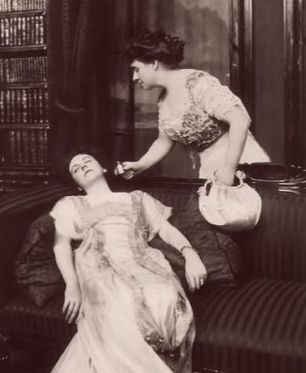 Writers are, by nature, sensitive beings, prone to sudden fainting spells and frequent temper-tantrums. Writers are, by nature, sensitive beings, prone to sudden fainting spells and frequent temper-tantrums. It is inevitable that every writer will, upon submitting their novel for editing, have that conversation. You know, the one where your editor slides your baby, the thick pile of pages that you've spent so many doting hours on, and utters those dreaded words: "I think you need to cut this scene." Cutting unnecessary scenes is normal, a natural part of the writing process, and one that should be faced with dignity, maturity, and calm acceptance. But since we're writers and artists, calm and dignity might be expecting a little much. It can help to know that, not only are we not alone, but there are actually five stages to receiving and accepting an edit. For the benefit of mankind, I outline them here, with illustrative dialog (which may or may not be autobiographical). Behold: the Five Stages of Editing Acceptance (or, How to Survive Your Mean Editor, with helpful illustrations...) 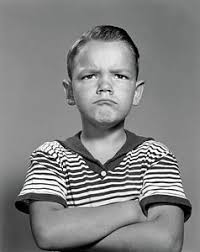 1. Denial The writer will resist the cut/edit/suggestion vehemently, to the point of self-delusion. "What are you talking about? This doesn't need to be cut. This is a perfectly gorgeous scene, so well written Shakespeare would have prostrated himself before my pen! PG Wodehouse would have given up and gone into drama. Shelley and Keats would rise from the dead just to praise me in verse! Yes, it's absolutely necessary. Why? Um, character development, of course. Yes, character development. No, I'm not making that up. Shorten it? Are you nuts? The main character finds a squirrel in her house - it takes twenty pages to describe that properly!" 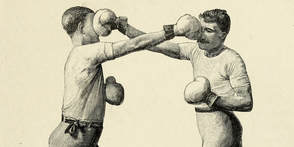 2. Anger On facing the editor's implacable insistence, the writer will often turn hostile. "Well, what do you know, anyway? I'm the writer - in this story, I'm the puppet master, the know-all, be-all and end-all. You just don't understand. Like everyone else, you can't just leave art alone - you have to try to destroy it. Why are we even friends? Yes, the squirrel is important! Do you hate squirrels or something? No, I will NOT keep my voice down. Yes, I will keep that scene, I will, I will, I will! You can't make me cut it. YOU ARE SO UNFAIR!" 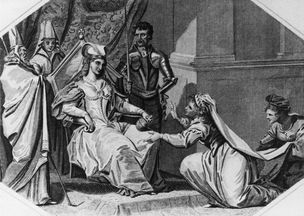 3. Bargaining Feeling helpless, the writer will then try to regain control of the situation. "All right, all right, fine! I'll consider it. How about I cut it back by about five pages. Seven? Ten... Ten, and I'll also cut the grocery store scene. Okay, okay, okay, final offer: I'll cut the squirrel scene by fifteen pages and the grocery store scene and toss in another romance scene to sweeten the deal, what do you say?... "Read it again and get back to you? If I do that, can I keep the squirrel scene?" 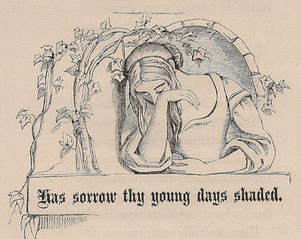 4. Depression Being forced to accept the authority of the editor, the writer will inevitably slump into self-recrimination and depression. "Yes. "Yes, I re-read it. You were right. It's horrible. It's stupid, a complete waste of time, ink, and paper. I can't believe I wrote this. Actually, I can. I'm the worst writer ever. This book make PS: I Love You look like a Pulitzer Prize Winner. I should never have learned to write. And what's worse, I ripped into you like... like.... "Well, that’s it. I quit. I'm turning in my keyboard. I'll throw myself on my pencil. Why am I even here? I'm a terrible writer, a terrible friend, a terrible person, and I need a double shot of Crown, like, right now."  5. Acceptance Moving forward, the writer sees the wisdom in the suggestion and begins to rebuild their self-esteem - which will last until the next edit or critique. "Okay, okay, I've cut the scene altogether and you know what? The story flows so much better now! It isn't terrible at all! It's tight, it flows, and I am a genius! Oh, right, it was your idea, I know, but that's what editors are for, right? "Hey, you know, I was feeling so good, I actually added an epilogue. Remember the tangerine incident? Maybe you haven't gotten that far, but it's hilarious, so I expanded it into this cool little... "Oh, you read it? What did you think?... It's not trite. It's cute!... Cliche! Honestly, you make me so mad sometimes!" Ad nauseum. Writers: making the emotionally unstable look like stoics since the invention of the hieroglyphic. 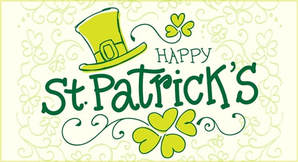 Tomorrow is St. Patrick's Day, historically a bigger deal here in the States, especially Boston, than it is in the Emerald Isle itself. It's the day devoted to the wearing of the green, indulging in blarney (the fine art of telling someone to go to hell in such a way that they look forward to the trip), filling your glasses with Guinness, and proudly crowing to all within hearing, "Erin go bragh." Not Irish? Feeling left out? No need to - I've got great news for you: You don't have to be Irish to celebrate St. Patrick's day! It's true! Everyone is invited to shilly-shally, tell a long story, wear the green (or the orange, if you're feeling in a fighting mood), or talk about who in your family shook the hand of the man who shook the hand of the man who shook the hand of John L. Sullivan, the Boston Strong Boy. It doesn't matter where you're from - on the 17th of March, everyone is Irish. 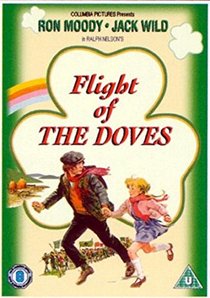 I'm not the first or the only one who proclaims this truth. As some of you may or may not already know, Summer Shadows was inspired by a soundtrack to a little-known movie called Flight of the Doves, a 1971 British film based on a book by Irish writer Walter Macken. The music was by jazz musician Roy Budd (of Get Carter fame) and you can listen to the suite on Youtube here. Flight of the Doves is a story about two orphans that runaway from their cruel guardian to find their grandmother in Ireland. When the guardian realizes that the children are about to come into a sizable inheritance, he hires a master of disguise with no compunctions to hunt the children down. From this rather terrifying situation, a sweeter story emerges as the two orphans discover the warmth and friendship of the Irish - and learn that you don't have to be Irish to be Irish. This truth is told to them in song form (see the awkwardly filmed clip from the movie below).  Truth be told, Irish is steeped so deep into this country that chances are you have a bit of the old sod somewhere in your family history somewhere. And even if were not so, Irish-American culture has seeped into your life in ways you may not be aware . The Irish in New England have worked in the mills, as policemen, on the farms, in the fine houses, in politics, in every sphere available to humanity in this country. The Irish have been here since the first ideas of independence took hold of the American colonists. If you live in the USA, your life has been touched, shaped, or molded in some way by the sons and daughters of Erin. So, in summary, you don't have to be Irish to be Irish on the 17th - though to quote the song, "You'll live a little more, and you'll love a little more. For that's what it takes to make you Irish." Tomorrow, lift your glasses to the Emerald Isle and shout "Sláinte!" You'll be in the best of company. Happy St. Patrick's Day, everyone! Erin go bragh! 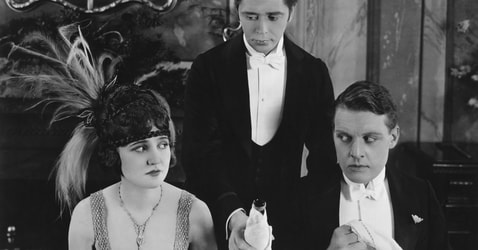 Your writing projects can be great sources of conversations at parties. They can, in turn, be causes of disillusionment. Every once in a while, I'll have a conversation that goes something like this (apologies to every unfortunate soul who got stuck standing next to me at a party!) New Acquaintance:
So, I hear that you're a writer. Do you make much money off your books? Me: (laughing) Good heavens, I'm lucky if I make anything at all! Acquaintance: Oh, all right, so you must have a deep, meaningful message to share with the world. Me: I guess. Acquaintance: What is that message? Me: Um... The world is a cool place with nice people in it? History is fun? Always take time to smell the roses? <Me thinking: Wow, that is so deep! Maybe I really am a philosopher!> Acquaintance: <thinking: That's about as deep as a Hallmark card.> So, you write to promote <names a cause>? Me: Well, I guess if it does, that's a good thing. Acquaintance: Oh, I see! Then you must do it for art? Me: Art? Golly, I'm not sure if what I do can be called art, but I'll take the compliment, thanks! Acquaintance: Right... So, uh.... why do you write? Me: Why do I write? That's very simple! It's because... Because... Uh... well, I guess because I like it. Acquaintance: You like it. Me: Yeah. Plus, I've been doing it so long I don't know what else to do, you know? Acquaintance: That's not terribly artsy. I thought all artists had deep philosophical thought or musings or... something. Anything. Even angst will do. Me: Yeah, I used to think so too. But angst is exhausting and kinda over-done, don't you find? Acquaintance: Oh, well, I guess... I'm sorry, why do you write again? Me: Because it's there. <awkward pause> Acquaintance: That's why you climb mountains. Me: You've obviously never written a book. It's much the same. Acquaintance: ...Okay, I'm going to go talk to your sister now. Me: I don't blame you. Have fun. On this busy, busy Monday, this is Danny Kaye and me reminding you to always TTTR: Take Time To Read!
Happy Monday, y'all! 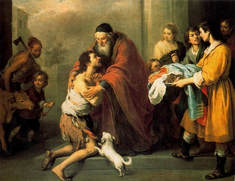 I haven't spoken much about Lent this year yet. I don't know why I haven't, except that this year, it seems to be an exceptionally private time. It is, of course, a time of meditation, of clearing the chaff from the wheat, the re-ordering of things according to their proper priorities, of seeing things as they really are. Lent is a desert time. You strip down to the essentials and venture forth into the barren for forty days to seek what it is that eluded you in the time of abundance. Ours is not the only culture that's done this - Native Americans have a long history of sending young men out into the wastelands, seeking insight as part of their coming of age ritual. But our Lent is unique in that it is not showy. Like Daniel in Darius' court, we are called to a desert in the midst of the ordinary, to strengthen ourselves by the denials of things right before our eyes, things we haven't the luxury of running away from. What is the point of all of this? The destination is as simple as Dorothy's goal on the Yellow Brick Road: we seek to find our way home. We are called to be "transformed by the renewing of our minds" because we are not of this world. (And, yes, regardless of whether or not you profess to be Christian, this last goes for you, too: this world is not your final destination. You are called to higher and better things - isn't that awesome?!) Lent is a time of remembering who we are and whose we are. It is a time of great homesickness. It is a time to remember that there is a home waiting for us at the end of the road, lights on, door open, and a loving father, waiting with open arms to welcome us back. 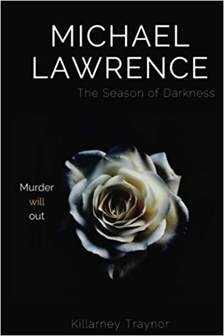 I've always been a bit of a DYI person. Not that I'm the type that makes my own cheese (though it's on my to-do list) or swaps out transmissions or anything intense like that. But when it comes to publishing and writing, I generally find myself trying to do everything. Sometimes I have great results. Sometimes it's more of a 'Lesson Learned' thing. Making my own cover for Michael Lawrence: the Season of Darkness was one of the latter. Don't get me wrong - I love this cover (the colors! the rose! the intrigue! Isn't it pretty?)! But over the course of the months, going to different live events, I got some feedback that made me realize that I have many things to learn about graphic design. Here are a few, which I now gladly share with you! 1: SIZING THE TYPE Intention: The Season of Darkness is intended as the start of a small series, so I made the main character's name big, as it's the title of the series. Result: Almost everyone has assumed that Michael Lawrence is the author. It's only when they squint that they see my name. Unlike Laura Holt's attempt to drum up business, putting a man's name on my book hasn't helped sales, alas! Conclusion: Make sure the author's name is large enough to see to deflect confusion. Also, when I re-do this cover, I'll probably be listing it as 'The Season of Darkness: a Michael Lawrence mystery'. 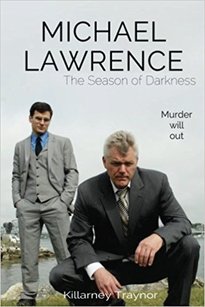 The Movie Tie-In Cover The Movie Tie-In Cover 2. THE ROSE Intention: In the language of flowers, the white rose stands for marriage (among other things) and I thought this rose, threatened by encroaching darkness and shadow, represented Michael's marriage problems pretty well. #deepermeaning, am I right? Result: Turns out, when most people see a rose, they think 'romance' - regardless of color (several would-be readers thought fantasy romance when they saw my rose). In contrast, the movie tie-in cover, with the two leads looking like British detectives having a stressful day, was instantly recognizable as what it was: an American murder mystery. Conclusion: Don't try to be too clever with your imagery. If the book looks like a romance novel or a gothic adventure, mystery enthusiasts will not bite. (Alas, my poor, misunderstood rose!) 3: THE TAG-LINE Intention: "Murder Will Out' is an idiom meaning 'murder cannot remain undetected'. I'd heard this phrase used over and over again in the mysteries I read and watched and it's the perfect tag for this particular case for reasons that I can't get into without spoilers. Plus, I knew it was English, which, as I was going for the feel of a British murder mystery, only added to its appeal. Result: Turns out, whatever books or movies I was enjoying aren't commonly known. This phrase, which is of unknown origin but sometimes attributed to Chaucer, made more people question me than the numbers 1 and 2 combined. No one knew what it meant. As a result, no one was intrigued by it. Conclusion: Run your tag line by a few people before you commit to them. It'll save you a lot of explanations in the long run. In Summary, creating your own cover is a ton of fun and well-worth the time and effort. But do yourself a favor: show it to a few of your friends, neighbors, co-workers, or innocent passersby before you commit. You may be saving yourself a lot of explanations in the future!
|
The BlogWelcome to Categories
All
|
Copyright © Killarney Traynor
All Rights Reserved.
No part of this website may be reproduced without
the Owner's express consent. [Backlinks allowed.]
All Rights Reserved.
No part of this website may be reproduced without
the Owner's express consent. [Backlinks allowed.]

